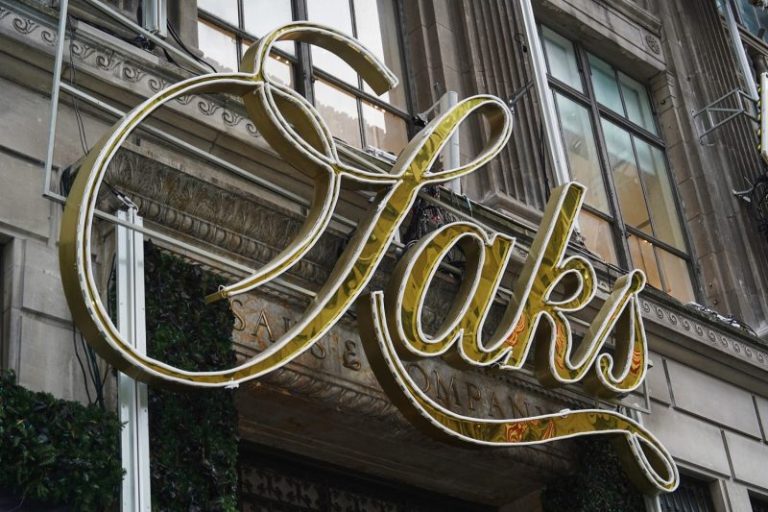TSX-V: WLR
Frankfurt: 6YL
Standards of Disclosure for Mineral Projects and its Companion Policy 43-101CP with an effective date of January 6, 2026.
The report was co-authored by Ronacher McKenzie Geosciences Inc. who conducted a site visit in 2025 to verify work completed since the 2021 season that has been reported by WLR which included a drill program in 2022, a minor sampling program on the Silver Hart claims in 2024, completion of a trenching program and minor reconnaissance efforts on the adjoining and acquired Blue Heaven claims in 2024, and reclamation programs on all of the claims in 2023 and 2024.
Subject to financing WLR intends to conduct drilling, socio-economic, environmental and engineering studies and initiate a Preliminary Economic Assessment of the Silver Hart Project in 2026.
The CIM Standards require that an estimated mineral resource must have reasonable prospects for eventual economic extraction. A summary of the SHP mineral resource economic and technical parameters and/or assumptions is presented in Table 1 below. A pit-shell was optimized based on silver equivalent values calculated using the economic parameters in the table.
Table 1: Summary of the Siver Hart Project Economic and Technical Parameters/Assumptions
|
Item |
Units |
Extended |
|
Mining cost |
CAD$/t all material |
10.00 |
|
Processing cost |
CAD$/t crude feed |
25.50 |
|
G&A cost |
CAD$/t crude feed |
5.00 |
|
Exchange rate |
CAD$ to US$ |
0.75 |
|
Ag price |
USD$/oz |
23.30 |
|
Pb price |
US$/metric tonne |
1,892 |
|
Zn price |
US$/metric tonne |
2,505 |
|
Metallurgical recovery |
Percentage |
80 |
|
Overall pit slope |
Degrees |
45 |
Silver Equivalent Calculation: AgEq g/t = [(Ag ppm x %Rec. x Price/g) + (Pb ppm x %Rec. x Price/g) + (Zn ppm x %Rec. x Price/g)]/ (Ag Price/g x %Rec).
Note: Rec. = metallurgical recovery. AgEq=Silver Equivalent.
Block grade interpolation was performed using the ordinary kriging (OK) technique. The estimated pit constrained mineral resources were classified as Inferred, despite some close drill hole spacing in some zones and the continuity of mineralization as confirmed by variography, mainly because of the lack of substantiated metal recoveries and suspect collar surveys. Table 2 summarizes the update MRE fpr the Silver Hart Project effective as at January 6, 2026.
Table 2: Silver Hart Project – Pit Constrained Mineral Resources at a Cut-off Grade of AgEq>=50 g/t
|
Mining Method |
Domain |
Mass (Tonnes) |
Average Value |
Material Content |
||||||
|
AgEq g/t |
Ag g/t |
Pb % |
Zn % |
AgEq Million oz |
Ag Million oz |
Pb Million lb |
Zn Million lb |
|||
|
Open Pit |
TM_Zone |
269,000 |
229.8 |
152.7 |
0.56 |
1.88 |
1.985 |
1.319 |
3.3 |
11.1 |
|
S_Zone |
127,000 |
334.5 |
262.1 |
0.36 |
1.90 |
1.368 |
1.072 |
1.0 |
5.3 |
|
|
KL_Zone |
1,026,000 |
110.9 |
35.7 |
0.11 |
2.17 |
3.659 |
1.178 |
2.5 |
49.0 |
|
|
K_Zone |
265,000 |
79.8 |
14.2 |
0.09 |
1.90 |
0.680 |
0.121 |
0.5 |
11.1 |
|
|
M_Zone |
202,000 |
173.6 |
98.1 |
0.58 |
1.82 |
1.128 |
0.637 |
2.6 |
8.1 |
|
|
Total |
1,889,000 |
145.2 |
71.3 |
0.24 |
2.03 |
8.820 |
4.327 |
9.9 |
84.7 |
|
|
Notes: |
|
|
1. |
The effective date of this mineral resource statement is January 6, 2026. |
|
2. |
The qualified person responsible for this Mineral Resource Estimate (MRE) is Charley Murahwi, M.Sc., P.Geo., FAusIMM. |
|
3. |
The mineral resources have been estimated in accordance with the CIM Best Practice Guidelines (2019) and the CIM Definition Standards (2014) |
|
4. |
Ordinary Kriging (OK) interpolation was used with a single block size of 5m x 5m x 5m. |
|
5. |
The Economic & Technical parameters/assumptions are summarized in Table 1.1 above. |
|
6. |
The mineral resource results are presented in-situ within the optimized pit. Mineralized material outside the pit has not been considered as a part of the current MRE. |
|
7. |
The tonnes and metal contents are rounded to reflect that the numbers are an estimate and any discrepancies in the totals are due to the rounding effects. |
|
8. |
Mineral resources unlike mineral reserves do not have demonstrated economic viability. |
The report also noted that:
- All the deposits remain open along strike in both directions and down dip, and, in particular, the largest deposit (KL zone). The likelihood of some of the deposits merging (i.e., K to KL, TM main to H and S to M) cannot be ruled out if a program of step out and infill drilling is implemented.
- The growth potential for the mineral resource is satisfactory as the deposits remain open for expansion in all directions (i.e., strike in both directions and down dip).
- Prospects for growing the resource via new discoveries appear favorable based on the fact that several known mineral occurrences and anomalies within the Silver Hart and the adjacent Blue Heaven claims remain to be test drilled for resource evaluation.
- The early initial metallurgical tests completed previously in 1986 and, in 2006, do not have substantiated documentation regarding representativity and location of the samples and, thus, the need for a fresh start is warranted. Nonetheless, the general response of lead, zinc and silver to flotation in those early tests was generally positive.
The NI-43-101 MRE report has been filed on its SEDAR+ profile and will soon be published on the Company’s website at www.walkerlaneresources.com
Kevin Brewer, President and CEO of WLR, commented ‘The MRE is a major milestone in our exploration efforts at Silver Hart. The MRE was estimated at prices much lower than current spot metal prices, which if used in the silver equivalent calculation in the MRE calculation result in an improved silver equivalent grade. You can do the math. As a result, WLR now intends to advance our evaluation of this project to consider a production decision in the short term. Mineralization in all of the zones in the Silver Hart Project start at surface and therefore are expected to be amenable to small scale open pit mining. WLR and its predecessor company CMC Metals Ltd. have been working on this project for 20 years and it is now prepped to take the project to the next stage.’
Next Steps – Highlights of Proposed 2026 Exploration Program and Preparation of a Preliminary Economic Assessment
Walker Lane Resources Ltd. also announced that it is preparing to commence planning for the next stage of its exploration program and evaluation of the Silver Hart Project which will contribute to a potential development decision for the project.
Subject to financing, WLR intends to:
- Complete 1,500-2,000 meters of exploration drilling to (i) extend the resources on the TM Zone (ii) to conduct infill drilling in the TM Zone with the objective of converting a majority of the inferred resources to indicated resources.
- Conduct 1,000-1,500 meters of exploratory drilling on known areas of mineralization on the Blue Heaven claims.
- Metallurgical testing including pre-concentration (ore sorting / dense heavy media separation) assessments.
- Conduct additional environmental and socio-economic studies to support a possible development application for the project. This is expected to include examining opportunities for partnerships with local First Nations.
- Initiate a Preliminary Economic Assessment of the project which will include preliminary engineering and a preliminary transportation/logistics analysis.
Qualified Persons
The resource evaluation work was completed by Mr. Charley Murahwi, M.Sc. P.Geo., FAusIMM and Richard Gowans, B.Sc, P.Eng of MICON International Limited. Mr. Murahwi conducted a personal inspection of the Silver Hart Project on August 17-20, 2021. Dr. Gloria Lopez, PhD, P.Geo. of Ronacher-McKenzie Geosciences Inc. was a contributing author and conducted a personal inspection of the Silver Hart Project on September 16, 2025. This information release has also been reviewed and approved by the Qualified Persons.
About Walker Lane Resources Ltd.
Walker Lane Resources Ltd. is a growth-stage exploration company focused on the exploration of high-grade gold, silver and polymetallic deposits in the Walker Lane Gold Trend District in Nevada and the Rancheria Silver District in Yukon/B.C. and other property assets in Yukon. The Company intends to initiate an aggressive exploration program to advance the Tule Canyon (Walker Lane, Nevada) and Amy (Rancheria Silver District, B.C.) projects through drilling programs with the aim of achieving resource definition in the near future.
For more information, please consult the Company’s filings, available at www.sedarplus.ca. Also please feel free to call Kevin at the number below.
ON BEHALF OF THE BOARD OF DIRECTORS
Kevin Brewer
CEO and Director
Walker Lane Resources Ltd.
Cautionary and Forward Looking Statements
This press release and related figures and/or tables, contain certain forward-looking information and forward-looking statements as defined in applicable securities laws (collectively referred to as forward-looking statements). These statements relate to future events or our future performance. All statements other than statements of historical fact are forward-looking statements. The use of any of the words ‘anticipate’, ‘plans’, ‘continue’, ‘estimate’, ‘expect’, ‘may’, ‘will’, ‘project’, ‘predict’, ‘potential’, ‘should’, ‘believe’ ‘targeted’, ‘can’, ‘anticipates’, ‘intends’, ‘likely’, ‘should’, ‘could’ or grammatical variations thereof and similar expressions is intended to identify forward-looking statements. These statements involve known and unknown risks, uncertainties and other factors that may cause actual results or events to differ materially from those anticipated in such forward-looking statements. These statements speak only as of the date of this presentation. These forward-looking statements include, but are not limited to, statements concerning: our strategy and priorities including certain statements included in this presentation are forward-looking statements within the meaning of Canadian securities laws, including statements regarding the Tule Canyon, Cambridge, Silver Mountain, and Shamrock Properties in Nevada (USA), and its properties including Silverknife and Amy properties in British Columbia, the Silver Hart, Blue Heaven and Logjam properties in Yukon all of which now comprise the mineral property assets of WLR. WLR has assumed other assets of CMC Metals Ltd. including common share holdings of North Bay Resources Inc. (OTC-US: NBRI) and all conditions and agreements pertaining to the sale of the Bishop mill gold processing facility and remain subject to the condition of the option of the Silverknife property with Coeur Mining Inc. (TSX:CDE). These forward-looking statements reflect the Company’s current beliefs and are based on information currently available to the Company and assumptions the Company believes are reasonable. The Company has made various assumptions, including, among others, that: the historical information related to the Company’s properties is reliable; the Company’s operations are not disrupted or delayed by unusual geological or technical problems; the Company has the ability to explore the Company’s properties; the Company will be able to raise any necessary additional capital on reasonable terms to execute its business plan; the Company’s current corporate activities will proceed as expected; general business and economic conditions will not change in a material adverse manner; and budgeted costs and expenditures are and will continue to be accurate.
Actual results and developments may differ materially from results and developments discussed in the forward-looking statements as they are subject to a number of significant risks and uncertainties, including: public health threats; fluctuations in metals prices, price of consumed commodities and currency markets; future profitability of mining operations; access to personnel; results of exploration and development activities, accuracy of technical information; risks related to ownership of properties; risks related to mining operations; risks related to mineral resource figures being estimates based on interpretations and assumptions which may result in less mineral production under actual conditions than is currently anticipated; the interpretation of drilling results and other geological data; receipt, maintenance and security of permits and mineral property titles; environmental and other regulatory risks; changes in operating expenses; changes in general market and industry conditions; changes in legal or regulatory requirements; other risk factors set out in this presentation; and other risk factors set out in the Company’s public disclosure documents. Although the Company has attempted to identify significant risks and uncertainties that could cause actual results to differ materially, there may be other risks that cause results not to be as anticipated, estimated or intended. Certain of these risks and uncertainties are beyond the Company’s control. Consequently, all of the forward-looking statements are qualified by these cautionary statements, and there can be no assurances that the actual results or developments will be realized or, even if substantially realized, that they will have the expected consequences or benefits to, or effect on, the Company.
The information contained in this presentation is derived from management of the Company and otherwise from publicly available information and does not purport to contain all of the information that an investor may desire to have in evaluating the Company. The information has not been independently verified, may prove to be imprecise, and is subject to material updating, revision and further amendment. While management is not aware of any misstatements regarding any industry data presented herein, no representation or warranty, express or implied, is made or given by or on behalf of the Company as to the accuracy, completeness or fairness of the information or opinions contained in this presentation and no responsibility or liability is accepted by any person for such information or opinions. The forward-looking statements and information in this presentation speak only as of the date of this presentation and the Company assumes no obligation to update or revise such information to reflect new events or circumstances, except as may be required by applicable law. Although the Company believes that the expectations reflected in the forward-looking statements and information are reasonable, there can be no assurance that such expectations will prove to be correct. Because of the risks, uncertainties and assumptions contained herein, prospective investors should not read forward-looking information as guarantees of future performance or results and should not place undue reliance on forward-looking information. Nothing in this presentation is, or should be relied upon as, a promise or representation as to the future. To the extent any forward-looking statement in this presentation constitutes ‘future-oriented financial information’ or ‘financial outlooks’ within the meaning of applicable Canadian securities laws, such information is being provided to demonstrate the anticipated market penetration and the reader is cautioned that this information may not be appropriate for any other purpose and the reader should not place undue reliance on such future-oriented financial information and financial outlooks. Future-oriented financial information and financial outlooks, as with forward-looking statements generally, are, without limitation, based on the assumptions and subject to the risks set out above. The Company’s actual financial position and results of operations may differ materially from management’s current expectations and, as a result, the Company’s revenue and expenses. The Company’s financial projections were not prepared with a view toward compliance with published guidelines of International Financial Reporting Standards and have not been examined, reviewed or compiled by the Company’s accountants or auditors. The Company’s financial projections represent management’s estimates as of the dates indicated thereon.
SOURCE Walker Lane Resources Ltd
View original content to download multimedia: http://www.newswire.ca/en/releases/archive/January2026/21/c0060.html
News Provided by Canada Newswire via QuoteMedia










